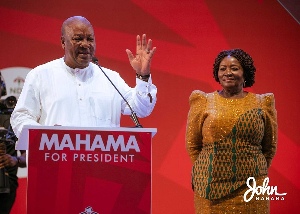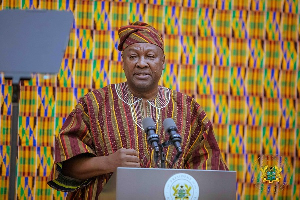By Kwesi Atta Sakyi 23rd October 2012
______________________________________________________________________________
While the political landscape is charged with political campaigns, I will like to divert attention to an issue which the politicians should pay attention to, for, there is no national issue which is apolitical.
Science is the realm of discovering the unknown, first through a sense of wonder, curiosity and imagination. Every human being is endowed with the faculty of wondering about the universe because he is part of it. It begins first about wondering about who you are, how you came into being, how you relate to your environment for survival, among others. In fact, the basic science that we first encounter is biology. Then when we start taking our few first steps whilst we are toddlers, the sense of balancing and motion comes in. That is physics. Even our sense of sight or recognition of objects is optics or part of physics.
Whilst we are breast feeding, we have some chemistry in motion, with the sense of feeling at play. We may fall ill and native herbs may be administered to heal us. That is pharmacology and botany. In Ghana today, our JHS and SHS students are challenged and hard put to it studying science in schools. They have limited access to science laboratories and equipment. The teachers may improvise, yet they face hard times teaching large classes. Thus, learning science in some schools is an agony in Ghana. The students lack properly trained teachers and also lack quality textbooks. A solution to this dearth of books is access to the internet. This is where we need to accelerate government programmes to provide internet access to all the nooks and cranies of Ghana. This is only possible when the rural electrification exercise has reached 100% coverage. Alternatively, we may have to resort to alternative energy sources such as solar power, bio fuels or biomass. For our children to become good future scientists like Michael Faraday, Thomas Edison, George Stevenson, Gugliomo Marconi, Bill Gates and others of this world, we need to expose them early to the scientific marvels of this world. Schools have to organize field trips to national parks at Mole, Kakum, among others to see the flora and fauna. Also, they need to visit industrial estates in places like Tema, Takoradi, Accra, and Akosombo, to see engineering marvels such as HEP stations, oil refineries, manufacturing and processing plants. In this way, they learn things first hand and they get motivated and their sense of wonder expands into infinite realms. Our students should be encouraged to carry out science projects which they can display during PTA open days or take to science fairs. We need to motivate our students by carrying out science and technology competitions. Our university students should be given assignments on national challenges so that they apply theory to the solution of national problems. Our students in secondary schools and tertiary institutions should be encouraged to go on industrial attachment or internship.
Schools’ PTAs should network with companies and NGOs to source for science equipment and computers. Our friends in the Diaspora can help donate science equipment, textbooks and laptops to their community schools. The other day, I was moved and impressed when I read on Ghanaweb that a young American-born Ghanaian musician, Kweku Gyasi Ghartey (Jay Ghartey), had built a school in Accra and he has plans to build more in his ancestral homes of Winneba and Cape Coast. That is the spirit. I know there are many Ghanaians in the Diaspora who are reading this, and who can help in diverse ways to improve science and technology back home in Ghana. No contribution is too small. I call upon people like Paa Kwesi Mintah to lead the charge.
Science and technology are the drivers of development, as they help create wealth, create jobs and solve national problems. Countries like South Korea, Japan and China are making waves around the world for their stupendous output and exports because of their scientific and technological prowess. In South Korea for instance, companies like LG, Samsung and Daewoo have become global electronic giants because of their earlier huge investments in science, technology education and human capital. It must also be recognized that mathematics has to be combined with science and technology. Our current school curriculum should be re-focused to produce a paradigm shift, away from theoretical education to one of practical application to solving national problems. We need to train more technicians than university graduates because in countries such as Germany, it is the technicians who work and drive industry. We can concentrate on producing few university graduates who may focus on research and development. We therefore need to set up more technical schools and polytechnics, where our SHS graduates can acquire practical skills. As we continue attracting massive inward foreign direct investment, because of our oil find, we need to get ready. Over to you, my fellow campaigning politicians. What is your take or manifesto on science and technology education in Ghana?
Contact: kwesiattasakyi449@gmail.com
Opinions of Sunday, 28 October 2012
Columnist: Sakyi, Kwesi Atta














